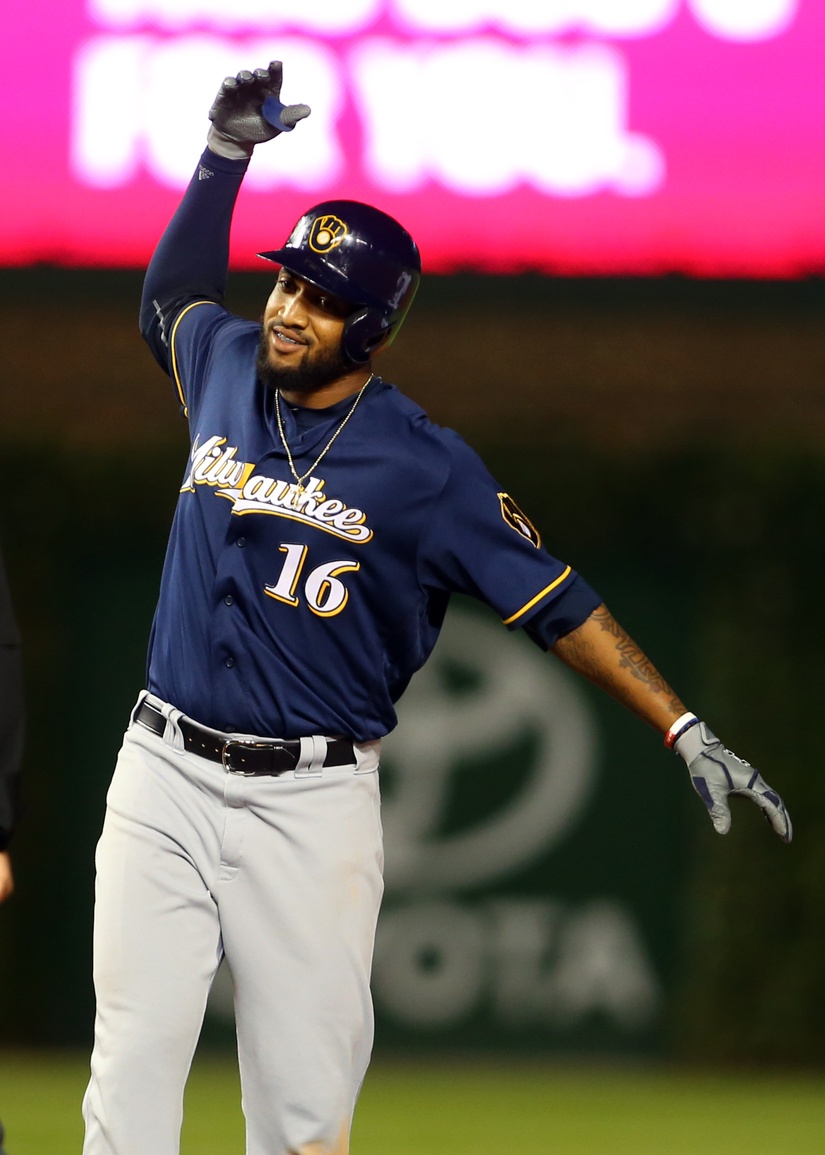After Francisco Lindor hit Cleveland’s third home run in the first game of their Divisional Series with Boston, TBS flashed a stat that Cleveland was 17-3 this season when hitting 3+ home runs in a game. I thought that was a silly fact to note since teams should win most of the time when hitting that many home runs. I went down a Play Index rabbit hole, and now we’re going to look at the 2016 Milwaukee Brewers when hitting at least three home runs in a game.
The Brewers hit at least three homers in a game twenty-two times in 2016, maxing out at five in a single game. In all of MLB, they finished tied for eleventh in total games with three homers, equaling the Cubs, Mets, and Nationals. Milwaukee went 18-4 in these games, which was only slightly above the league average winning percentage of 80.4.
Winning games when hitting a bunch of dingers seems pretty simple, so let’s take a look at the Brewers four losses to see if there were any common threads.
August 19 at Seattle Mariners
Milwaukee won its first 14 games when hitting at least three home runs in a game, so we move straight to August. The Brewers hit three solo home runs, including back to back homers by Jonathan Villar and Keon Broxton. They also added another three runs off non home runs.
Unfortunately, the pitching staff let them down. The Mariners scored at least one in each inning after the third off Brent Suter, Jhan Marinez, Tyler Cravy, and Chase Anderson. Delightfully for this article, they hit three home runs during their binge. The Brewers made a late charge in the ninth inning as Edwin Diaz walked three of five batters, then gave up a two run single. Unfortunately, he struck out every other batter that inning to save a 7-6 Mariners victory.
August 27 against Pittsburgh Pirates
The Brewers hit at least three home runs twelve times at Miller Park in 2016. They won eleven of those games. This is the twelfth. They jumped on Pirates starter Jameson Taillon early, scoring five runs in the first three innings, including Hernan Perez’s two home runs, one of which scored three runs.
Heading into the top of the fourth, the Brewers were up 5-1. Then Jimmy Nelson allowed four runs and Tyler Cravy came in relief and allowed one more to score before finishing the inning. Cravy then led off the next inning with a home run, which is his only career hit to date. It was also the Brewers last run of the game. Pittsburgh scored three more in the sixth inning off Blaine Boyer and their bullpen shut down Milwaukee’s lineup in the 9-6 win.
September 13 at Cincinnati Reds
The Brewers hit two solo home runs in the first three innings, but starter Matt Garza allowed three runs in the fourth inning to give the Reds at 5-2 lead. They’d tack on another run in the eighth before a Chris Carter two run home run in the ninth cut the lead to 6-4, the final score. This was the most boring game of the four losses. The Brewers’ win probability fell below 50 percent in the bottom of the third inning and never again rose above 18 percent.
September 14 at Chicago Cubs
Yes, this happened two nights in a row. The Brewers only managed four runs off their three home runs. They had ten hits total in the game but couldn’t string together enough hits. Only three baserunners advanced past first base not on a home run. Somehow, the Brewers led going into the ninth inning, as Chase Anderson, Jacob Barnes, Brent Suter, Jhan Marinez and Corey Knebel combined for two runs over eight innings. Then Carlos Torres blew the save in the ninth and Blaine Boyer allowed a walk off home run (of course) in the tenth inning for the 5-4 Cubs win.
The obvious common thread here is a lack of runs. While the Brewers averaged 5 runs a game across these four losses, higher than the MLB average of 4.48, that’s less impressive when realizing that our criteria gives them an automatic three runs. Only three of the twelve homers in these games scored an additional run, so some blame here certainly goes to the offense. The team had issues stringing together hits outside the home runs. They scored only four runs total outside of the homers, not putting together any big innings.
However, there’s another commonality in these games: poor pitching. While averaging five runs a game when hitting three home runs is not impressive, that also means the pitching staff had to let opposing offenses score in bunches, and they did! These four teams scored 6.75 runs per game against the Brewers. And that’s the key to losing when you hit three home runs: your pitching staff lets you down.
Thanks to TBS for throwing us down a rabbit to try and find meaning in a silly infographic. Credit, as always, to Baseball Reference Play Index.
